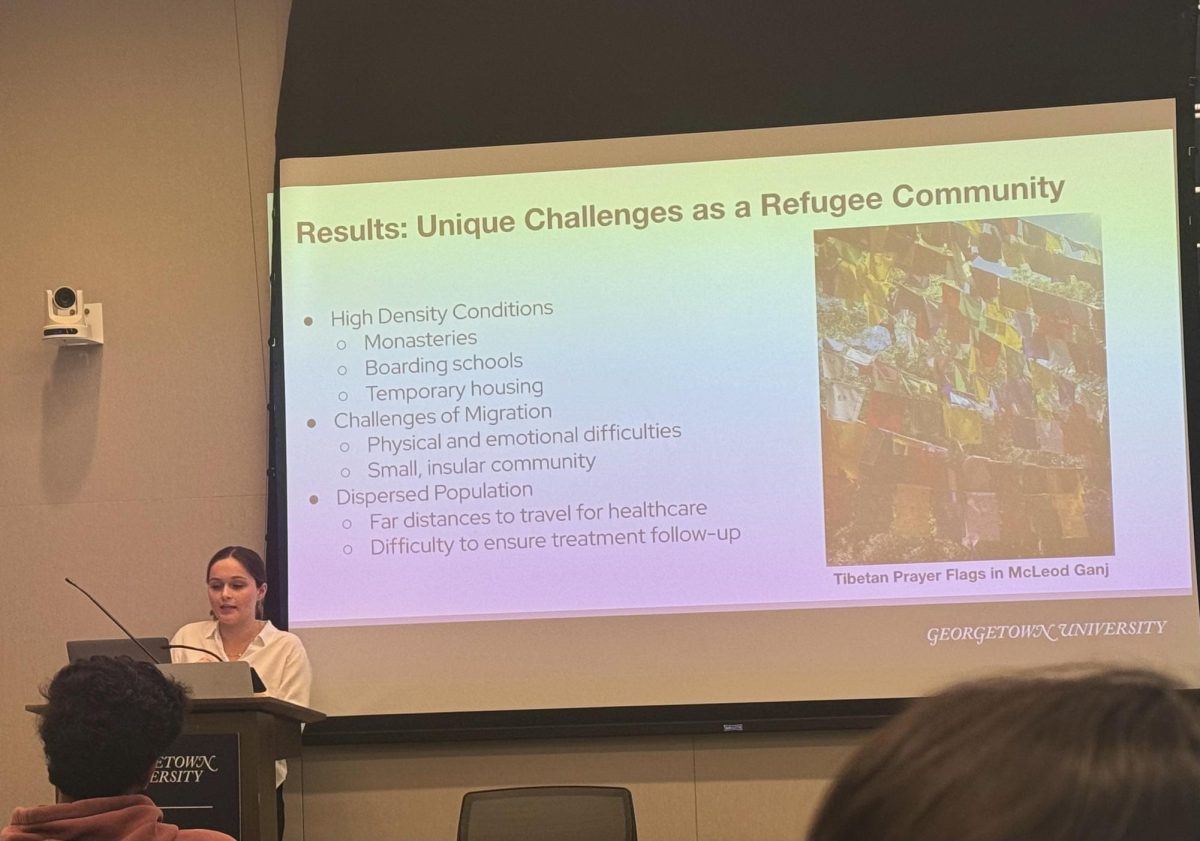 We realize that national and international political events play a crucial role in our education and dialogue here at Georgetown. We also realize how terrifying it can be when someone talks about a current political issue and you have no idea what that person is saying. That’s wherePoliSci for the Average Guy comes in.
We realize that national and international political events play a crucial role in our education and dialogue here at Georgetown. We also realize how terrifying it can be when someone talks about a current political issue and you have no idea what that person is saying. That’s wherePoliSci for the Average Guy comes in.
PoliSci for the Average Guy is a recurring post that keeps you easily and entertainingly informed of the political issues that have most recently been making headlines. With help from PoliSci, you’ll be a little less stressed and a little more informed about today’s serious political topics and will be able to dive into the discussion yourself.
This past week has been filled with newsworthy stories, from a historic natural disaster in the Philippines to controversial political change in the United States. For your fill of what’s been happening, please read on.
On Nov. 7, a disastrous typhoon hit the Philippines, an island nation nuzzled in the waters off Southeast Asia. A typhoon is any tropical storm that takes place near the Indian or western Pacific Oceans. However, the typhoon that struck the Philippines on Nov. 7 – Typhoon Haiyan – was not just any tropical storm.
The “super-typhoon” Haiyan put 25 million Filipinos in harm’s way with winds that averaged 315 miles per hour. According to CNN, “Haiyan was probably the strongest tropical cyclone to hit land anywhere in the world in recorded history.” The storm’s path of destruction encompassed two-thirds of the Philippines with its extensive clouds. Moreover, the category 5 strength natural disaster hit at a particularly inopportune time: Only one week before Haiyan wreaked havoc on the Philippines, a 7.1 magnitude earthquake hit the island nation, killing 222 people and displacing 350,000 people.
Typhoon Haiyan took the lives of over 4,000 people and displaced 4.4 million others, taking an unprecedented toll in the Philippines. Of those who survived, approximately 5 million workers have lost their livelihoods either temporarily or permanently. Luckily, economic impacts of the disaster will be minimal because the affected regions account for only a small proportion of Filipino GDP. Nonetheless, Danilo Israel, senior research fellow at the Philippine Institute for Developmental Studies commented, “The loss in human lives, the loss of bio-diversity, the destruction of heritage sites, the loss of relationships — it’s difficult to put a value on these intangibles, which can sometimes have a big impact on economic growth.”
If you’d like to support the victims of Typhoon Haiyan, click here.
—-
Meanwhile, as the world seems to unite through the tragic losses in the Philippines, the United States government is divided again, this time over filibusters.
On Nov. 21, the United States Senate voted 52-48, with all Republicans and 3 Democrats voting against, to terminate the use of filibustering on executive branch nominees and judicial nominees other than to the Supreme Court. A filibuster is a type of debate procedure that is used to delay or prevent a vote on a proposal. It’s like politicians doing a funny dance – or, in actuality, making a long speech – at the front of the room to distract their colleagues from what they were supposed to vote on. However, the dance often lasts far too long and creates inefficient decision-making.
The Democrats, who led this historic change in procedure, argued that the need to change the rules was prompted by Republicans’ abusing their right to filibuster and unnecessarily delaying or blocking several Obama appointees. Meanwhile, Republicans argue that our “founding fathers” allowed for filibusters for a reason, a reason that sounded something like this: “We hold these truths to be self-evident, that politicians were created unequal – some will do things quickly and others will just keep talking.” I kid, but I hope you’re catching my drift.
Now, after the recent vote, only a simple majority (50% + 1) of senators is needed to confirm federal judge nominees and executive-office appointments. (This is opposed to the 60% +1 supermajority that was previously required.) Therefore, the appointment process has become more direct.
Although this change seems like a blip in the timeline of American politics, it sends a message that the formerly “unchangeable” rules of politics are becoming changeable. Is nothing permanent in politics? More to come in my next installment of Poli Sci.
Images: Google












